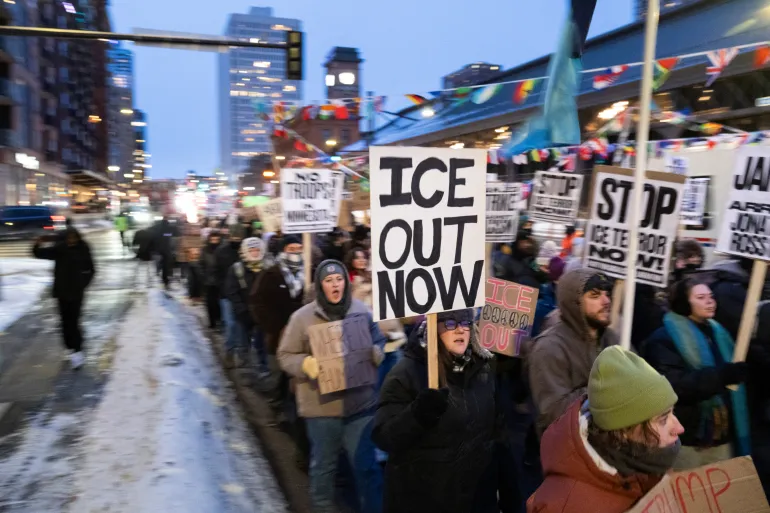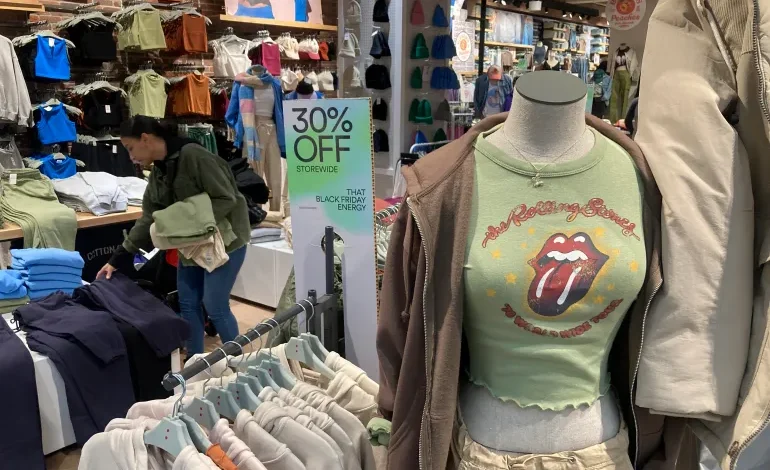Mounting anxieties surrounding tariffs and persistent inflation have driven US consumer confidence to its lowest level in 12 years, Al Jazeera reports.
The Conference Board reported Tuesday that its Consumer Confidence Index plunged 7.2 points in March to 92.9, marking the fourth consecutive monthly decline. This figure falls significantly short of analysts’ expectations of 94.5, according to a FactSet survey, and represents the lowest reading since January 2021.
A particularly concerning indicator is the sharp drop in Americans’ short-term expectations for income, business conditions, and the job market, which plummeted 9.6 points to 65.2. This reading is well below the threshold of 80, a level that The Conference Board warns can foreshadow a potential recession. The proportion of consumers anticipating a recession is now at a nine-month high.
Economists have been highly critical of President Donald Trump’s unpredictable tariff policies, arguing that they sow confusion and make it difficult for businesses to plan effectively, thereby harming the broader economy. While Trump recently indicated that some tariffs might be delayed or adjusted, he simultaneously suggested that tariffs on imported automobiles are forthcoming.
This decline in confidence mirrors a similar downturn reported earlier this month in the University of Michigan’s consumer sentiment measure, effectively erasing the gains made following Trump’s election victory in November.
The Trump administration has largely downplayed these concerns, asserting that they don’t necessarily reflect the actual state of the economy. This argument echoes similar claims made by officials in the Biden administration when high inflation suppressed consumer confidence despite underlying economic growth.
However, leading retailers are painting a different picture, observing noticeable shifts in consumer behavior. While Walmart has benefited from consumers seeking bargains to offset rising prices, the retail giant recently slashed its profit forecast for the year and issued a conservative sales outlook that does not even factor in the potential impact of tariffs. Target also reported a dip in sales and profit during the crucial holiday quarter and predicted “meaningful pressure” on profits, partly due to tariffs on goods from Mexico, Canada, and China.
Macy’s, Best Buy, Abercrombie & Fitch, Dollar General, and numerous other retailers have also expressed increased caution regarding their 2025 outlooks, citing pervasive “economic uncertainty.”
The Conference Board’s survey also revealed a decline in purchasing plans for homes and cars. However, in a surprising twist, intentions to buy big-ticket items like appliances increased, potentially reflecting a desire to make purchases before tariffs drive up prices.
While inflation has eased from its post-pandemic highs, it remains above the Federal Reserve’s 2% target. These persistently elevated prices, combined with the announced tariffs on many imported goods, are contributing to a souring mood among consumers and heightened concerns about the economic outlook.
Following strong consumer spending during the holiday season at the end of 2024, US retail sales experienced a sharp pullback in January 2025, although unusually cold weather was partially blamed. This follows a tepid increase in consumer spending reported earlier this month, following a significant decline at the beginning of the year. Furthermore, The Conference Board also reported a 3.6-point decrease in consumers’ assessment of current economic conditions, bringing the index to 134.5.
The Consumer Confidence Index (CCI) provides a vital snapshot of the US economy by measuring both Americans’ assessment of present economic conditions and their expectations for the next six months; because consumer spending constitutes roughly two-thirds of all US economic activity, economists closely monitor the CCI as a key indicator of overall economic health and consumer sentiment.










The latest news in your social feeds
Subscribe to our social media platforms to stay tuned